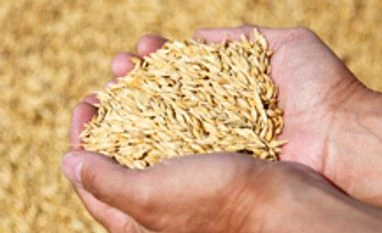In their meeting held in the run up to the First Quarter Review of Monetary Policy 2013-14, held on July 24, the members were of the view that though the monsoon had been good, inflation facing consumers was still high.
The bill aims to provide five kg of foodgrains every month at Rs one-three a kg to around 67 per cent of the population. The bill, part of Congress manifesto in the 2009 polls, is expected to bring electoral benefits just as the rural job plan - the Mahatma Gandhi National Rural Employment Guarantee Scheme - did in the 2009 general elections.
Also Read
“Food prices are still elevated and the Food Security Bill would aggravate food price inflation as it would tilt supply towards cereals and away from other farm produce (proteins), which would raise food prices further,” said the TAC members.
The bill, costing Rs 124,723 crore to the government initially, would bring an additional burden of only Rs 23,800 crore, the Congress has said. Food Minister K V Thomas has said the government had already procured an average 60.2 million tonnes of grains in the past four years and would have no difficulty in managing the 61.2 million tonnes needed in all for the envisaged scheme. When fully implemented, it would cost the exchequer around Rs 131,000 crore, as against the 2013-14 food subsidy allocation of Rs 90,000 crore.
A majority of the members of the TAC (four of the seven external members) also agreed that the central bank should maintain a status quo in the policy, to guard against high inflation expectations that can destabilise the momentum of the economy.
RBI Governor, D Subbarao chaired the meeting, which was attended by all deputy governors.
Regarding the US Federal Reserve’s quantitative easing, most members felt that while it cannot continue forever, its withdrawal could well be slow. Concerns of an early tapering of QE3 has made the rupee depreciate sharply against the dollar.
The members were of the view that developments in the external sector — large current account deficit and pressure on the rupee — is the immediate concern that needs to be addressed. Some members suggested that in these circumstances, the RBI should let the real effective exchange rate depreciate to help regain the competitiveness that Indian exports have lost.
On the fiscal front, members hoped that the fiscal deficit would be reduced in a manner that would not be growth punishing, that is, capital expenditure would not be cut down.
)